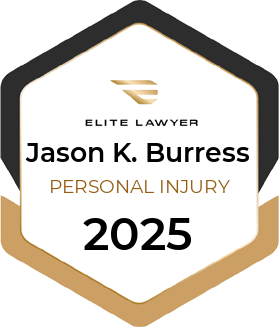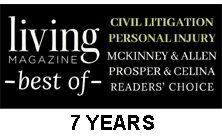Maximizing the Claim's Value - NOT Settlement - Is Your Goal
If a lawsuit is handled well, the insurance company responsible for paying your claim will resolve the matter through settlement. If they do not, a case will proceed to trial, where it will be your legal team's responsibility to convince a jury to make the insurance companies pay you. This process may seem filled with stops and starts, but it is important to remain patient about that process to maximize your chances to recover the full value of your claim. Before you hire an attorney, there are several things you should consider about the conclusion of a case, in making your decision about who you ask to represent you. At Burress Injury Law, we take great pride in handling our cases with these considerations in mind, and we are happy to visit with you about them.
First, a settlement should not be your attorney's main goal. Less than policy limit settlements could arguably be considered a form of concession by both sides. The insurance company concedes that perhaps the other driver was responsible and that you are owed money. It is also a concession by you that your case is worth the amount that you accept, and not more. Most personal injury cases eventually result in settlements. So why should your attorney not focus on that? If the goal is to simply obtain a settlement - and therefore get paid something - this goal will not result in the insurance companies paying the full amount your claim actually is worth. In nearly every claim made, or lawsuit filed, an insurance company will offer something. An attorney may offer to take a case because something will be offered. Or he or she may think they can likely get a "quick settlement." They might tell you the other side should pay something to make the case go away. However, these statements suggest the attorney is only evaluating whether the case is worth anything, and not anything more.
Second, a case should be evaluated on its merits. If an attorney is not evaluating a case on whether it should settle, how should it be considered? A good lawyer will evaluate your case upon the facts, circumstances, the evidence available, and the witnesses that may testify. In other words, your lawyer should want to get to the bottom of exactly what happened, what information is favorable and unfavorable to your case, what insurance coverage is available to you, whether the other party was responsible, and the extent of your injuries/damages and what evidentiary proof can be uncovered and produced. If he sees those things are in your favor, he can then work to present them to either the insurance company or the jury in order to obtain the best value for your case.
Third, your attorney should be willing and prepared to try your case before a jury. Listen to any prospective attorney you may hire to see if he or she has trial experience and/or takes pride in his or her ability in a courtroom. The reason why is very simple. If the main goal is to settle your case, and the attorney does not seem prepared to take it to trial, then he doesn't truly believe in the case. And if that is true, why should the insurance company believe in it when negotiating? It is important that the other side know that a settlement will be considered, but that the failure to settle may result in greater risk of loss to them in the future.
Fourth, the final decision to settle a case lies with you. Quite simply, the law and rules of professional conduct do not allow any attorney to accept or not accept a settlement if the client does not approve. And no lawyer should force a client to accept a settlement offer, though they may advise a client to do so. In many instances, if a client rejects a settlement and the attorney disagrees, the attorney will withdraw from the case and assert a lien, so that when another lawyer gets a higher settlement or judgment at trial, the first lawyer can claim a portion of the money paid, when in reality he may not have been willing or able to prepare for a trial for the client. Because of this, it is important that you understand our approach to cases.
At Burress Injury Law, we are your advocate first. That means we are working with you and for you to act in your best interest. It is important then that we meet with you, get to know you, and fully commit to getting the most value for your case - not simply settling them to avoid pushing them to trial when necessary. We determine on the first day whether you are a client we are comfortable working with, and we spend time to build a meaningful relationship with you so that you are comfortable receiving legal guidance from the Burress Injury Law team. We work with our clients to have aligned goals and manage the case with that in mind. We ensure that both the client and our law firm are willing to proceed to trial, if necessary, and we will respectfully decline a case if a client only wants to obtain a settlement, but is not willing to go all the way to trial in the event the insurance companies are unfair. Our clients understand that we will not recommend all settlements offers be accepted. Rather, we insist upon full and fair value settlements for the clients we represent. Similarly, we expect that our clients be committed to working hand in hand with us to maximize the value of their claims.
Finally, we work together with our clients to bring their cases to the best possible conclusions. Sometimes that will be a settlement, and other times that will be at trial before a jury. Notably, we are very proud of our results on both fronts, and we believe you will find our team to be incredibly capable of assisting you in resolving your personal injury claim.





















 ON
ON
